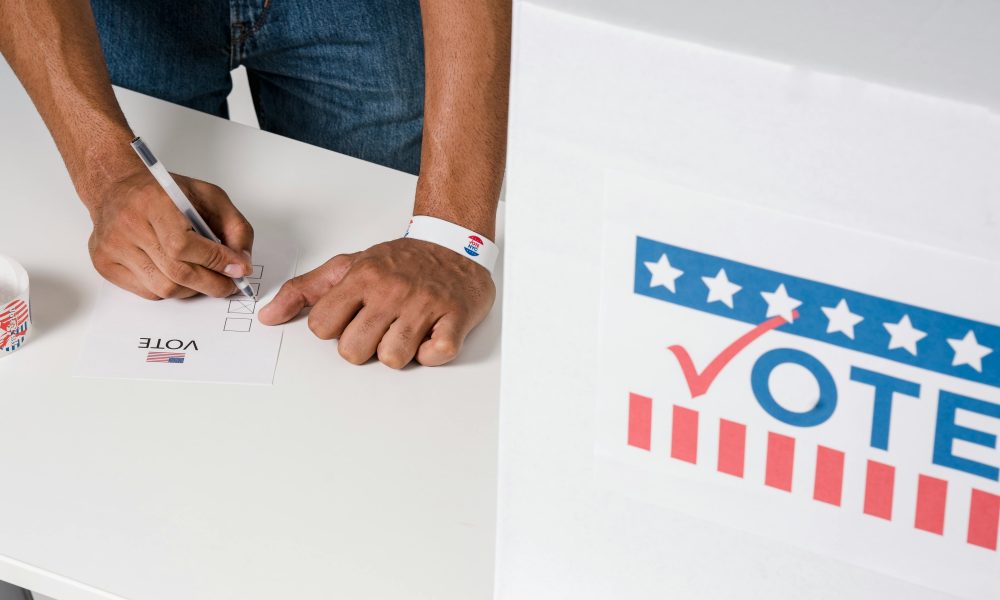At 11:08 AM on January 6th 2021, the current President of the United States at the time, Donald Trump, made a phone call to Vice President Mike Pence. In that phone call, Trump urged Pence to stop the certification of, now President, Joe Biden’s victory over Trump in the 2020 election. Just 30 minutes after his request was denied, at 11:38 AM, Donald Trump left the White House to address a nearby gathering of his followers at a rally. At this rally Trump made statements like: “We beat them four years ago. We surprised them. We took them by surprise and this year they rigged an election. They rigged it like they’ve never rigged an election before… Does anybody believe that Joe had 80 million votes?” To this day, Trump still repeats this sentiment to his audience and his crowd still roars just as loudly as they did when he spoke on January 6th.
Trump concluded his rally by saying, “We fight. We fight like hell, and if you don’t fight like hell you’re not going to have a country any more. My fellow Americans, for our movement, for our children, and for our beloved country. So we’re going to, we’re going to walk down Pennsylvania Avenue. And we’re going to the Capitol.” Just one mile away from the rally, the entire Congress of the U.S gathered to verify the results of the 2020 presidential election. Almost immediately after the conclusion of Trump’s rally, a crowd formed outside of the Capitol building. As the crowd became increasingly violent, Capitol police responded to the scene.Trump’s supporters threw metal poles at police officers and gradually pushed back the police until they reached the Capitol Building. By 2:30 PM, the building waslocked down, Mike Pence and all of the Congressional Leaders had been evacuated, and the mob had made their way into the building.
January 6th’s Capitol riots are the direct result of a deep distrust in the integrity of our country’s elections which has long been held by Republicans. Donald Trump and his followers’ raid on the Capitol are the most obvious recent example of this; however, it’s not the only one. For decades, Republican candidates have pushed the importance of voter I.D in preventing voter fraud – masquerading it as a serious issue for Republican media outlets and officials. A search for “voter fraud” on the Heritage Foundation website will result in countless articles emphasizing the importance of voter fraud, but the Heritage Foundation’s very own database will also show you that since 1982, 42 years ago, there’s only been 1,546 cases of voter fraud – meaning an average of just under 37 cases per year. Clearly 37 votes is not changing the result of even a local election let alone presidential ones, so why do conservatives insist that voter fraud is a real problem and advocate so heavily for voter I.D?
After the American Civil War and the ratification of the 14th and 15th Amendments, most of the former confederate states created what are known as Jim Crow laws, laws that were specifically made to restrict the rights of Black Americans while finding loopholes around the 13th, 14th, and 15th Amendments. When it comes to voting, these states created several barriers such as literacy comprehension tests, poll taxes, and grandfather clauses. These laws don’t directly say, “Black people aren’t allowed to vote,” but they target people people who have limited access to education, who have not built generational wealth, and whose families were not able to vote in the past, which perfectly describes the average Black person in the immediate aftermath of the north atlantic slave trade.
Eventually, Jim Crow laws became illegal obviously, but that does not mean conservatives stopped creating barriers to voting. The remote location of polling centers in some places, the fact that elections are always on a Tuesday, and strict voter I.D requirements are all intentional decisions that make it more inconvenient to vote, especially for working class voters, young voters, and minority voters. The effectiveness of these methods of voter suppression is evident in the fact that the aforementioned groups consistently have the lowest rates of voter turnout.
The persistent threat of Voter fraud is just one of many nonsensical points of contention that American politicians have vastly overstated in order to justify certain decisions in the minds of the average American. Unlike other topics though — such as immigrant crime, or books brainwashing kids in school — in the case of voter fraud, it seems that people fail to realize that these are lies. Or maybe they dismiss the negative impacts that overly strict laws preventing voter fraud may have on the outcome of an election and subsequently on the American electorate who are not being adequately represented in their government.










